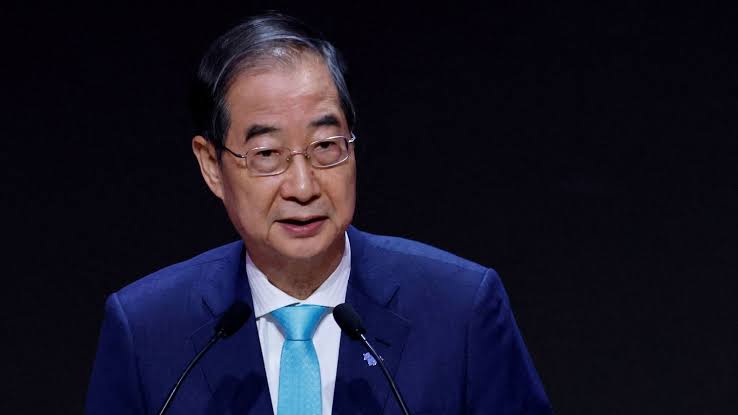National Times Bureau, March 24, 2025: South Korea’s Constitutional Court has reinstated Prime Minister Han Duck-soo, overturning his impeachment while the court has yet to decide on the separate impeachment of President Yoon Suk Yeol.
Han’s reinstatement does not necessarily indicate the fate of Yoon, as Han played no role in the controversial martial law declaration that led to Yoon’s impeachment. However, the ruling is expected to energize Yoon’s supporters and escalate political tensions with the opposition.
Yoon was impeached by the opposition-controlled National Assembly after imposing martial law on December 3, which triggered a massive political crisis. Han, who became acting president after Yoon’s suspension, was later impeached as well. His removal deepened divisions in South Korea and disrupted diplomatic and economic stability. Deputy Prime Minister Choi Sang-mok had been leading the country in Han’s absence.
On Monday, the Constitutional Court ruled 7-1 in Han’s favor, stating that the accusations against him were either not illegal, not severe enough, or failed to meet the necessary quorum for impeachment. Six votes were required to uphold his removal, but only one justice supported the decision.
Following his reinstatement, Han pledged to focus on urgent economic matters and called for national unity, emphasizing that “there’s no left or right—only the advancement of our nation.”
Meanwhile, Yoon remains at the center of political turmoil. His impeachment trial is still pending, and if upheld, South Korea will hold a new presidential election. If overturned, Yoon will return to office with full presidential powers. Separately, he has been charged with rebellion over his martial law order and was recently released from detention to stand trial. If convicted, he could face a life sentence or the death penalty.
The political crisis has sparked massive protests, with Yoon’s opponents denouncing his actions and his supporters growing stronger. At the heart of the controversy is his deployment of troops and police to the National Assembly to prevent lawmakers from voting against his decree. Though Yoon claimed it was to maintain order, officials involved have testified that he ordered lawmakers to be removed to block the vote.
Han, a career diplomat appointed by Yoon, had attempted to restore diplomatic stability while serving as acting president. However, his refusal to fill vacancies on the Constitutional Court fueled opposition efforts to remove him. The court requires six of nine justices to uphold Yoon’s impeachment, but Han’s refusal to appoint judges was seen as an attempt to tilt the balance in Yoon’s favor.
Choi Sang-mok, Han’s successor as acting president, later appointed two justices but left the ninth seat vacant. The liberal opposition, suspecting political bias, has now moved to impeach Choi as well.
The Constitutional Court’s ruling on Yoon’s fate remains uncertain, and the nation remains deeply divided over its leadership crisis.
South Korea’s Constitutional Court Overturns PM Han Duck-soo’s Impeachment

